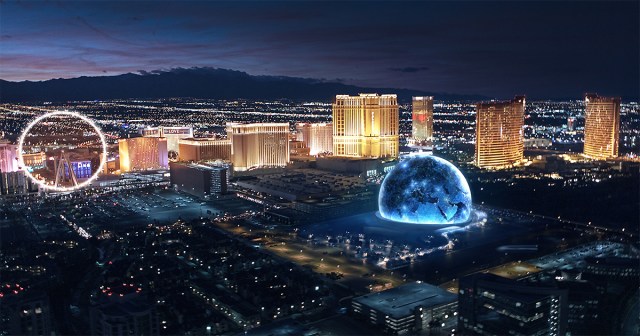TL;DR
- Paramount Pictures futurist Ted Schilowitz says next-gen mixed reality devices are getting closer, and in time we will all be using them in the same way we use smartphones today.
- When we get there the future of entertainment will be more like the contiguous mixed reality experience of a Disney theme park, says Schilowitz.
- Schilowitz refuses to call this mixed reality experience the “metaverse,” which he says has already jumped the shark.
Wearables that will finally enable us to experience the mixed reality three-dimensional internet are coming. Paramount Pictures futurist Ted Schilowitz has seen them
“The ones that have a visual toolset in them, trust me, it’s coming,” he said during an interview at SXSW. “It’s the coolest part of my job. I get to see things way, way before they actually have consumer viability. So I can tell you that it’s coming. Get ready. Because somewhere in the future we’re all going to have something different than we have today to communicate with, to connect with, to socialize with, to have fun with.”
Describing his role as “a professional frog kisser — because you got to kiss a lot of frogs to find your prince or your princess,” Schilowitz explained that when he talks with tech start-ups and his own company’s R&D teams he asks why are you building this? What does it solve?
“And a lot of people don’t have a strong enough answer to get me excited about why they’re doing it. A lot of things that relate to this — that maybe a lot of you are pursuing in some fashion — is what we call the metaverse.
“I refuse to call it the metaverse anymore because it’s already fully jumped the shark.”
Schilowitz explained how the work of a futurist is really about mining the past and extrapolating trends. For example, where once the first flat screen HD TV’s cost thousands of dollars, now 4K giant home displays are commonplace.
“Just like a smartphone is no longer technology but a part of your biology. It is so linked to what you do and how often you hold it, touch it, connect with it, use it. There’s people multitasking on their biological devices, and that is not technology anymore.
“It is actually embedded in your physical and mental DNA. But we’re still using a form factor from generations ago.
“So when you hear a guy like Apple’s Tim Cook say augmented reality and mixed reality will be like this — that at some point in the future you will kind of not even understand how you lived without it.”
Schilowitz continued, “The perception of technology has got to a point where we’re starting to learn and remember where our eyes are and where our ears are. And they’re not in our hands, right? We will get to a point where it makes more sense to wear it, than hold it.”
The vision that Schilowitz has of the future of entertainment was previously imagineered by Walt Disney. Growing up in and around Disney World in Orlando, Schilowitz says the theme park where experiences are lived will be extended digitally into the wider world.
“If it’s done correctly, you don’t know where [the theme park] starts, where it ends. It’s just this joyous, amazing experience and it’s everywhere around you. And now we’re able to do that with technology.”
The start of this is with home VR, which the exec said was starting to be a profitable and viable part of the industry. The next step is trying to put VR into something as ergonomically pleasing as a smartphone, “whether it’s glasses or implants or whatever we all end up using, but it’s going to be closer to our eyes,” he said.
In addition, the way we capture images will have to change from flat 2D to one that includes depth, volume and true 3D.
“We need a different form of capture. [Current] 3D is an illusion of that. It’s only on one plane of volumetric capture. There’s a lot of companies doing this and it’s very early stage but it’s an important next step. Cameras will capture volume as well as high fidelity so that we can use them in the devices of tomorrow.”


